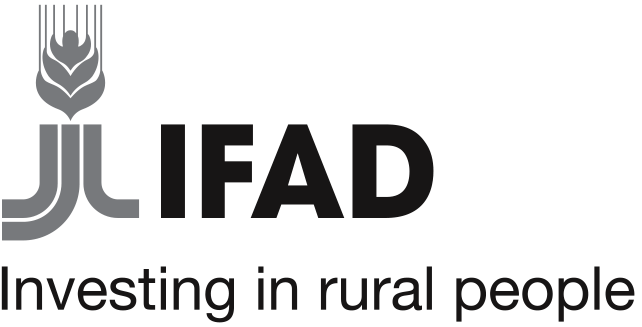Smallholder Commercial Agriculture Project, IFAD Impact Assessment Surveys, 2019
Sao Tome and Principe, 2018
Get MicrodataIdentification
STP_2019_PAPAC-IIAS_v01_EN_M_v01_A_OCS
Smallholder Commercial Agriculture Project, IFAD Impact Assessment Surveys, 2019
| Name | Country code |
|---|---|
| São Tomé e Príncipe | STP |
Agricultural Survey [ag/oth]
The Participatory Smallholder Agriculture and Artisanal Fisheries Development Programme (PAPAFPA) and the Smallholder Commercial Agriculture Project (PAPAC) are complementary projects designed to improve the livelihoods of smallholders in Sao Tome and Principe. PAPAFPA created four farmers’ cooperatives to enhance the development of the cacao, coffee, and pepper value chains through increased commercialization in domestic and niche export markets. PAPAC aimed to consolidate the activities carried out under PAPAFPA and to introduce family plantations within each value chain.
The projects interventions revolve around the promotion of certified organic farming and the creation of export-oriented cooperatives in each value chain, together with the investment in rural infrastructure. The projects’ cooperatives play a key role in the implementation of the interventions in the field, by working closely with the farmers and their associations, providing professional training, productive assets and facilitating linkages to the market. The interventions aim at increasing agricultural production in a sustainable manner via organic farming, enhancing market access and resilience to shocks, thereby promoting small farmers’ income stability and food security.
For more information, please, click on the following link https://www.ifad.org/en/web/knowledge/-/publication/impact-assessment-papafpa-and-papac.
Sample survey data [ssd]
Households
Scope
The subjects covered by the survey are the following:
- socio-demographic characteristics
- agricultural and livestock production
- asset ownership
- adoption of certified and organic agricultural practices
- food security
- resilience
- sustainability
- access to markets
- associativism
- women’s empowerment.
Coverage
National. Four cooperatives of rural smallholder producers spread over 108 communities nationwide.
Smallholder producer households
Producers and sponsors
| Name | Affiliation |
|---|---|
| International Fund for Agricultural Development | United Nations |
| Director of the Instituto Nacional de Estatística | INE |
| Name | Role |
|---|---|
| International Fund for Agricultural Development | Funding |
| OPEC Fund for International Development | Funding |
| Global Environment Facility | Funding |
Sampling
A total sample of 1,404 households, consisting of 627 treated households and 713 non-treated (control) households, spread across 7 districts and 116 communities, was collected for this impact assessment. The number of communities sampled was proportional to district size in the two islands of São Tomé and Príncipe.
No weighting.
Survey instrument
The impact assessment uses a mixed-methods approach incorporating a qualitative survey and two quantitative surveys. Data were collected from 1,404 households and 126 community and producer association leaders. Information was collected at the household level on demographics, expenditures, wealth, income-generating activities, and resilience, and at the community level on market access, infrastructure, gender, and producer organization empowerment.
The quantitative data consisted of two separate questionnaires: one administered to a sample of 1,404 households and another to a sample of 126 leaders/key member of communities and/or producers’ associations. The household survey collected information mainly on household level indicators related to agricultural production, consumption, wealth, income, vulnerability and social capital. The producer’ associations survey, on the other hand, focused mainly on indicators related to community level agricultural markets, infrastructure, associativism and resilience.
Note: some variables have missing labels. Please, refer to the questionnaire for more details.
Data collection
| Start | End |
|---|---|
| 2018-09 | 2018-11 |
- Computer Assisted Personal Interview [capi]
Data Access
| Is signing of a confidentiality declaration required? | Confidentiality declaration text |
|---|---|
| yes | The users shall not take any action with the purpose of identifying any individual entity (i.e. person, household, enterprise, etc.) in the micro dataset(s). If such a disclosure is made inadvertently, no use will be made of the information, and it will be reported immediately to FAO |
Micro datasets disseminated by FAO shall only be allowed for research and statistical purposes. Any user which requests access working for a commercial company will not be granted access to any micro dataset regardless of their specified purpose. Users requesting access to any datasets must agree to the following minimal conditions:
- The micro dataset will only be used for statistical and/or research purposes;
- Any results derived from the micro dataset will be used solely for reporting aggregated information, and not for any specific individual entities or data subjects;
- The users shall not take any action with the purpose of identifying any individual entity (i.e. person, household, enterprise, etc.) in the micro dataset(s). If such a disclosure is made inadvertently, no use will be made of the information, and it will be reported immediately to FAO;
- The micro dataset cannot be re-disseminated by users or shared with anyone other than the individuals that are granted access to the micro dataset by FAO.
The use of the dataset should be referenced in any publication, using the following citation:
International Fund for Agricultural Development. Smallholder Commercial Agriculture Project, IFAD Impact Assessment Surveys, São Tomé e Príncipe, 2019. Dataset downloaded from https://microdata.fao.org.
Disclaimer and copyrights
The user of the data acknowledges that the original collector of the data, the authorized distributor of the data, and the relevant funding agency bear no responsibility for use of the data or for interpretations or inferences based upon such uses
Metadata production
DDI_STP_2019_PAPAC-IIAS_v01_EN_M_v01_A_OCS_FAO
| Name | Affiliation | Role |
|---|---|---|
| Office of Chief Statistician | Food and Agriculture Organisation | Metadata producer |
Metadata version
STP_2019_PAPAC-IIAS_v01_EN_M_v01_A_OCS_v01
